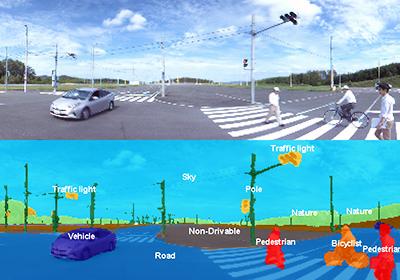Japanese ICT giants put AI on the road
DENSO Corporation and Toshiba are jointly developing an artificial intelligence (AI) technology, called Deep Neural Network-Intellectual Property (DNN-IP), which will accelerate driver assistance and automated driving technologies and open up new business applications.
The move combines image recognition systems which have been independently developed by the two companies to help achieve automated driving technologies way ahead of what exists today – aiming to rival and exceed the human brain.

DNN is an algorithm modelled after the neural networks of the human brain. It is expected to perform recognition processing as accurately as, or even better than the human brain.
A Denso spokesperson said to achieve automated driving, automotive computers need to be able to identify different road traffic situations including a variety of obstacles and road markings, availability of road space for driving, and potentially dangerous situations.
“In image recognition based on conventional pattern recognition and machine learning, objects that need to be recognised by computers must be characterised and extracted in advance,” the spokesperson said.
“In DNN-based image recognition, computers can extract and learn the characteristics of objects on their own, thus significantly improving the accuracy of detection and identification of a wide range of objects.”
Because of the rapid progress in DNN technology, the two companies plan to make the technology flexibly extendable to various network configurations. They will also make the technology able to be implemented on in-vehicle processors that are smaller, consume less power, and feature other optimizations.
Denso has been developing DNN-IP for in-vehicle applications. By accelerating the process to commercialise DNN-IP through the joint development and incorporating DNN-IP in in-vehicle cameras, Denso will develop high-performance, advanced driver assistance and automated driving systems, and continue to contribute to building a safe and secure automotive society for people around the world, not just for drivers and pedestrians.
In addition to its conventional image processing technologies, Toshiba will partition this jointly developed DNN-IP technology into dedicated hardware components and implement them on its in-vehicle image recognition processors to improve their image processing performance and enable them to process images using less power than image processing systems with digital signal processors (DSPs) or graphics processing units (GPUs).
ends